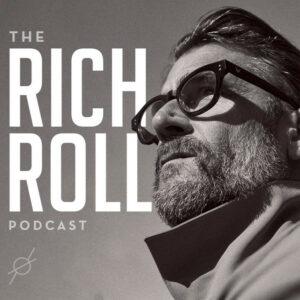
In this episode of Impact Theory with Tom Bilyeu, renowned neuroendocrinologist and author Robert Sapolsky returns for a thought-provoking discussion on the impact of body chemistry on relationships, emotions, and human behavior. Sapolsky challenges the concept of free will and explores the biological mechanisms behind decision-making and moral reasoning. He emphasizes the importance of understanding our biological nature while still appreciating the wonder and amazement of human experiences.
Robert Sapolsky emphasizes that understanding the biological mechanisms behind human emotions and behaviors doesn’t diminish their significance. Factors like sleep, sunlight, diet, and exercise play a crucial role in optimizing the body’s ability to process the world effectively. By balancing the knowledge of being biological machines with the wonder and amazement of human experiences, individuals can lead more fulfilling lives.
The case of Phineas Gage serves as a compelling example of how brain injuries can drastically alter a person’s behavior and character. This highlights the significant impact of brain trauma on fundamental character and moral values. Sapolsky suggests that individuals on death row with a history of head trauma may not be inherently bad, but rather have broken machinery in their brains due to concussive trauma.
A study on parole board judges revealed that the single best predictor of their decision to parole or send someone back to prison was the time since they had eaten a meal. This showcases the influence of low blood sugar levels on decision-making and moral reasoning. Despite controversy and challenges, the re-analysis of the data suggests that the conclusions remain robust and significant.
Contrary to popular belief, testosterone does not directly cause aggression but makes aggressive individuals more sensitive to social cues that trigger aggression. It also makes individuals more likely to engage in behaviors that maintain their social status when challenged. This highlights the context-dependent effects of testosterone and challenges simplistic assumptions about its role in aggression.
Studies indicate that men prioritize potential fertility in partners, while women prioritize money-earning capacity. However, regardless of cultural differences, kindness consistently ranks as the most important trait in a partner. This finding highlights our shared human nature and the universal value of kindness in relationships.
Dopamine plays a crucial role in fueling goal-directed behavior and the ability to delay gratification for larger future rewards. Unlike other species, humans can maintain dopamine for long periods, motivating them to pursue long-term projects and goals. This unique aspect of the human brain’s dopamine system allows for a wide range of anticipatory pleasures, from scientific discoveries to enjoying simple pleasures like the scent of a flower.
The quick reset of the dopamine system creates a perpetual hunger for new and better experiences. While this perpetual hunger drives human innovation and progress, it also necessitates awareness and self-reflection to avoid falling into a dopamine treadmill. Understanding why something that was exciting yesterday feels boring today can lead to skepticism about our constant hunger for more.
Robert Sapolsky questions the existence of a soul and challenges the concept of free will. He proposes a public health model for dealing with dangerous individuals, focusing on constraining them and addressing root causes of criminal behavior. By comparing the approach to handling dangerous individuals to dealing with malfunctioning machines, Sapolsky emphasizes the importance of understanding the underlying causes rather than solely attributing behavior to personal choice.
The Scandinavian penal system, which emphasizes minimal constraint and quarantine for prisoners, has significantly lower rates of violent crime and recidivism compared to the United States. Despite the leniency, the system is supported by the majority of people in Norway. This highlights the societal belief in the effectiveness of a system that focuses on rehabilitation and addressing root causes rather than punitive measures.
Engaging in deep contemplation about human goodness and morality prevents individuals from acting recklessly, regardless of their belief in free will or God. Studies show that people who risk their lives to save others can come from various belief systems and backgrounds. This challenges the notion that morality is solely dependent on religious or philosophical beliefs and highlights the importance of individual character and empathy.
Robert Sapolsky’s discussion on the impact of body chemistry, the concept of free will, and the influence of beliefs provides a thought-provoking exploration of human behavior and decision-making. Understanding the biological mechanisms behind emotions and behaviors allows for a more nuanced perspective, while still appreciating the wonder and complexity of human experiences. The importance of addressing root causes and adopting a public health approach to dealing with dangerous individuals challenges traditional notions of punishment and personal responsibility. By acknowledging the influence of biology and societal factors, we can strive for a more compassionate and empathetic society.